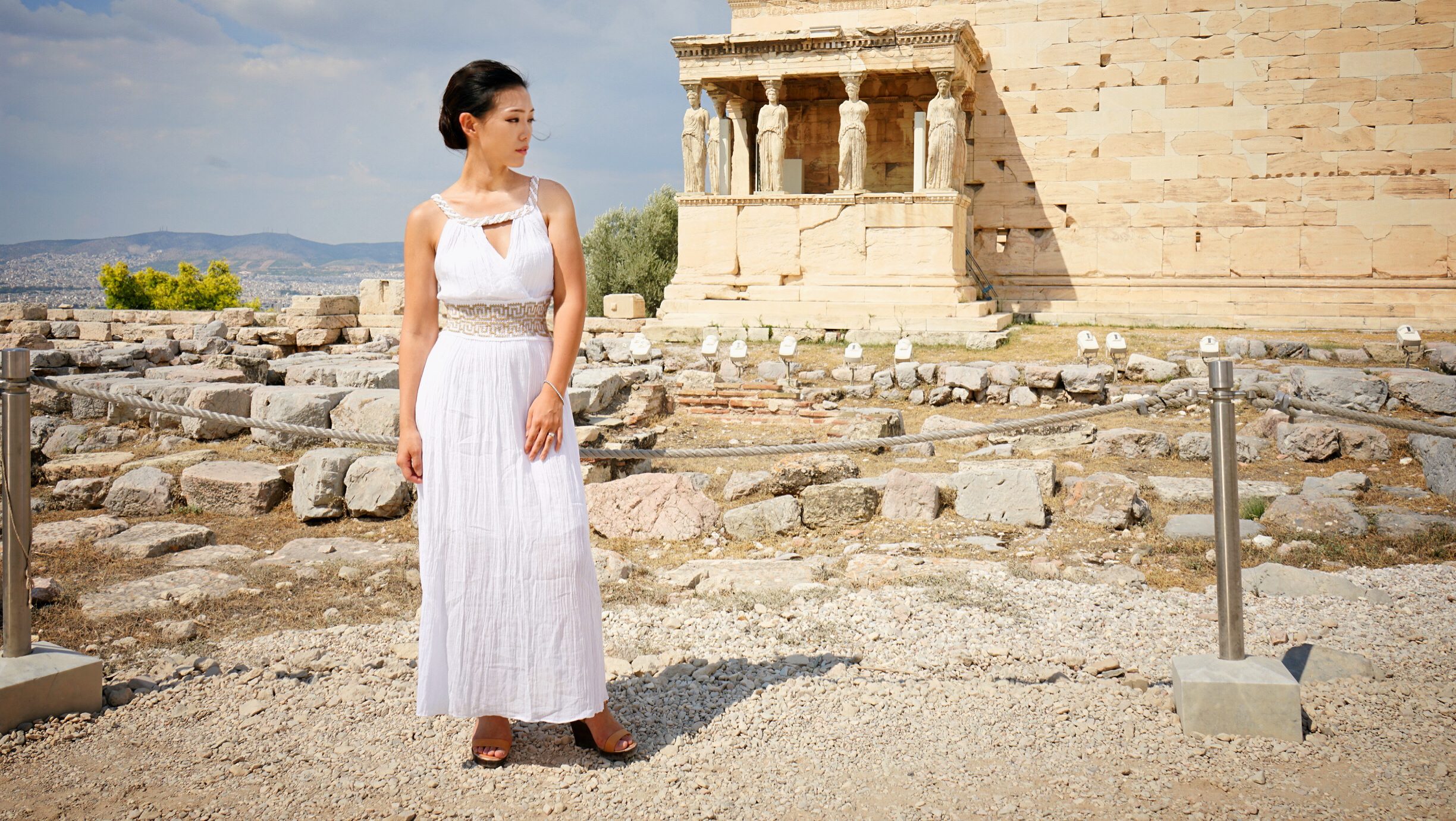Gain Freedom From the Fear of the Future: How to Thrive in an Uncertain World written by John Jantsch read more at Duct Tape Marketing
The Duct Tape Marketing Podcast with John Jantsch In this episode of the Duct Tape Marketing Podcast, I interviewed Dr. Frederik Pferdt, the first Chief Innovation Evangelist at Google and a renowned expert on innovation and creativity. Frederik Pferdt helped shape one of the most fabled creative cultures in the world. He founded Google’s […]
Gain Freedom From the Fear of the Future: How to Thrive in an Uncertain World written by John Jantsch read more at Duct Tape Marketing
The Duct Tape Marketing Podcast with John Jantsch
In this episode of the Duct Tape Marketing Podcast, I interviewed Dr. Frederik Pferdt, the first Chief Innovation Evangelist at Google and a renowned expert on innovation and creativity.
Frederik Pferdt helped shape one of the most fabled creative cultures in the world. He founded Google’s Innovation Lab, where he trained tens of thousands of Googlers to develop and experiment with cutting-edge ideas and taught ground-breaking classes on innovation and creativity at Stanford University for more than a decade.
He has also worked with dozens of international government agencies, organizations, and businesses ranging from the United Nations to NASA to the NBA. His work has been highlighted in Fast Company, Harvard Business Manager, Der Spiegel, and BBC news, among many other media outlets.
Dr. Pferdt shares his insights on how not just optimism but radical optimism can transform our relationship with the future, helping us create a world we want to live in.
Key Takeaways
Questions I ask Frederik Pferdt:
[02:25] Would you say Ning was ahead of its time?
[03:50] Would you say a platform like Facebook then was another advancement of Ning or completely derivative?
[07:53] How would you define community?
[14:03] How important is having a clear and compelling purpose in designing your community?
[17:13] How do you manage having so many feature requests?
[21:18] Do you have an interesting case study of how someone achieved great financial success starting with a community?
[24:44] Is there someplace you want to invite people to learn more about Mighty and connect with you?
More About Frederik Pferdt:
-
- Connect with Frederik Pferdt on LinkedIn
- Visit his Website
- Grab a copy of What’s Next Is Now: How to Live Future Ready
Like this show? Click on over and give us a review on iTunes, please!
Connect with John Jantsch on LinkedIn
This episode of The Duct Tape Marketing Podcast is brought to you by ActiveCampaign
Try ActiveCampaign free for 14 days with our special offer. Exclusive to new customers—upgrade and grow your business with ActiveCampaign today!
Speaker 1 (00:00): I was like, I found it. I found it. This is what I’ve been looking for. I can honestly say it has genuinely changed the way I run my business. It’s changed the results that I’m seeing. It’s changed my engagement with clients, it’s changed my engagement with, it’s the best investment I ever made.
John Jantsch (00:14): What you just heard was a testimonial from a recent graduate of the Duct Tape Marketing certification intensive program for fractional CMOs marketing agencies and consultants just like them. You could choose our system to move from vendor to trusted advisor, attract only ideal clients, and confidently present your strategies to build monthly recurring revenue. Visit DTM world slash scale to book your free advisory call and learn more. It’s time to transform your approach. Book your call today, DTM World slash scale.
(01:03): Hello and welcome to another episode of the Duct Tape Marketing Podcast. This is John Jantsch. My guest today is Dr. Frederik Pferdt. He is the first chief innovation that helped shape one of the most fabled creative cultures in the world. He founded Google’s innovation lab where he trained tens of thousands of Googlers to develop and experiment with cutting edge ideas and taught groundbreaking classes on innovation and experiment with cutting edge ideas for more than a decade at Stanford University. He’s also the author of a book we’re going to talk about today. What’s next is now How to Live Future Ready. So Dr. Fard, welcome to the show.
Frederik Pferdt (01:45): Thank you, John for having me.
John Jantsch (01:47): It’s a pleasure. So let’s maybe kind set a baseline. When a lot of people hear about the future, it seems like people are either excited or they dread it. I don’t think that you’re going to tell people they should dread the future. So how do you get people to think appropriately about what the future means?
Frederik Pferdt (02:06): Yes, that’s a great question. And so I really want to help people to change their relationship with the future. As you just described, we feel sometimes anxious, uncertain about the future, but we also feel excited from time to time about the future. And we all know we live in that world where change is accelerating and it’s happening constantly and this can feel overwhelming for a lot of people. And so the challenge that we all face, I think, is that our minds are looking for certainty. And if we don’t find that certainty, we feel anxiety. So we spend a lot of time worrying about the future because our minds crave that certainty and really our brains are wired to make this feel uncomfortable for me, really about helping people to not think about the future and do predictions, but rather changing their relationship with their own future and saying like, Hey, what future do I want to create? Instead of asking what will the future bring? And I think that’s something that I’m personally very excited about because that changed my relationship with my future. And so taking control of what’s happening next is something very important. I want to help people to do that.
John Jantsch (03:34): So that idea of that’s obviously how to live, future ready, how to live the future you create, I think is obviously a big premise of the book. How do you get people past this idea of creating something that is unknown because it’s five, 10 years from now, entire things that we took for granted will no longer exist. So how do you get that kind of mindset?
Frederik Pferdt (04:00): Exactly. And you are mentioning an important point, which is mostly we talk about these futures that are way out on the horizon. It’s like five years, 10 years, or even like 30 years. That’s what we usually talk about. And for me, I want to bring the future close, which means I want to bring it so close that every choice you make in this moment determines what’s going to happen next. And so you mentioned something that I feel we also need to discuss, which is that notion of a mindset. That word mindset is just around everywhere we have, even in school, it’s taught, which is very important, having a specific mindset. But also we use it in organizations where we talk about we need to have an organizational mindset, for example, or we talk about it even with products, you can now buy products that help you to change your mindset might be like a drink for example, or certain pills and so forth.
(05:10): And I think we need to change that probably because we have mindsets all around. And Carol Dweck did incredible important work around that. But I found that it’s a term that is also overused. And even if you’re typing something into a document or use chat GPT or use Google, whatever it is, it always defaults back to mindset. And for me, the concept of a mindset refers to a stable, long-term collection of beliefs and values and attitudes that we carry with us. And it’s deeply ingrained and often resistant to change having been formed and solidified over years of experiences teaching. So it’s really hard for us to change a mindset. And so what I want to do is I want to change that notion towards a mind state. And for me, a mind state is something different. It’s fluid, it changes based on the immediate situation.
(06:14): It really reflects our real time emotional and mental responses, and it can significantly influence our decisions and actions. And for me, that mind state is our moment to moment perspective really that is influenced by our thoughts and emotions. And that really guides how we interact with the world. And I think for me, if we focus on the mind state, it helps us to actually also take control and how we perceive a situation and how we experience the present moment. And that is really something that is very powerful and I use in the book. And so by focusing on your mindset state, really you can actively shape how you experience and respond to everyday situations and thereby constructing the future you desire. And that’s the whole again, premise of what I want people to do.
John Jantsch (07:07): And I want to get into the dimensions further of that mind state a little bit, but can you give me an example of how somebody, you started to talk about traditional mindset as opposed to this future ready mind state. Do you have examples of how somebody can actually make that shift from one to the other?
Frederik Pferdt (07:28): Yes. So when we talk about one of the dimensions, for example, radical optimism that I put out there, we usually say either you are an optimist or a pessimist. That’s the categories we usually use in our everyday language. And for me, it’s not the usual way of looking at a glass half full or half empty type of person. For me, being a radically optimistic person is somebody who looks at the possibilities and opportunities that you can fill your glass even further. And so a radical, optimistic person transforms really challenges into opportunities and every situation into a chance for something exceptional. And by shifting that view, we find potential in everything. Uncovering those hidden possibilities. And this perspective really encourages us to aim for what I call better, making really every moment an opportunity for growth. I can share an example of how that might look like.
(08:36): So if I look at my desk and I see like, oh, I have a very clever desk, a regular optimistic person might say, Hey, fantastic, at least I have a desk to work at, right? That’s what they usually would say. But for me, a radically optimistic view is what’s better is that I can work on multiple interesting projects simultaneously reflecting my diverse interests and skills. So that’s a more radically view of a cluttered desk. Or you might say, I’m here in a geodesic dome and I have some noises outside where some woodwork is being conducted at the moment, which is great. Or you look outside your window, right, John, and you say, oh, I have a noisy busy street outside your window. So an optimist would already say, at least I live in a lively area. A radically optimistic person actually frames that as what’s better is that I’m part of a vibrant and alive community that offers constant inspiration and connection. So you see that in that language. It’s not just looking for what’s the positive about that, but what’s the better that I can find here in these situations? And that’s something you can train yourself in. That’s something you can practice and work on. And I think that’s something very powerful I want to help people to do.
John Jantsch (10:00): It’s my pleasure to welcome a new sponsor to the podcast. Our friends at ActiveCampaign. ActiveCampaign helps small teams power big businesses with a must have platform for intelligent marketing automation. We’ve been using ActiveCampaign for years here at Duct Tape Marketing to power our subscription forms, email newsletters and sales funnel drip campaigns. ActiveCampaign is that rare platform that’s affordable, easy to use, and capable of handling even the most complex marketing automation needs. And they make it easy to switch. They provide every new customer with one-on-one personal training and free migrations from your current marketing automation or email marketing provider. You can try Active Campaign for free for 14 days and there’s no credit card required. Just visit activecampaign.com/duct tape. That’s right. Duct Tape Marketing podcast. Listeners who sign up via that link will also receive 15% off an annual plan. That’s activecampaign.com/duct tape. Now, this offer is limited to new active campaign customers only.
(11:06): So what are you waiting for? Fuel your growth, boost revenue and save precious time by upgrading to active campaign today. To what extent, and I know all of what we’re talking about is learned, so to what extent is this a generational thing? So I look at a 10-year-old now and they don’t think, oh, the future is something I have to learn. They think this is what I am. Some video game comes along, they don’t think, how do I learn it? It’s like, no, I am it. Whereas somebody like me who might say, for AI for example, this is something now I want to learn, but it’s something that I need to actually figure out or learn. So to what extent are those two ends of the age spectrum play a role in the ability to learn these behaviors?
Frederik Pferdt (11:56): Yes. So I’m a big fan of our next generation. I have to say I am just always tremendously in awe when I see the young generation taking control of their future. They’re going on the streets and telling everyone that we need to do something about climate change. And they’re really proactive in all of those things and how they use AI and new technology is something very powerful because they not just see the downsides, but they start experimenting and trying things out and see how that could work for them or what’s something we need to refine and improve. But there’s one interesting thing that when we grow up is somehow changing, and that’s curiosity. I have one of the dimensions of a future ready mindset is what I say. Compulsive curiosity and curiosity really drives us to explore and understand our world better, which is really crucial in our rapidly changing environment.
(13:00): So we are all born with that curiosity and it’s firing in all cylinders. When we’re children, you probably remember John like crawling around on the floor, you probably not but your parents when you crawl around the floor and you’re trying to put everything in your mouth and you look at everything and you taste everything, and you really explore with all of your senses, the world, every moment. And I think that’s very powerful, that curiosity, because you start to learn a lot, but our natural curiosity goes actually dormant over time. And so the good news is that we can reawaken it by continuously questioning and seeking to learn more about everything around us. And I think that’s probably one of the last frontiers of, for us humans probably is asking better questions. As you mentioned, AI and technology gives us a lot of good answers at the moment. So I think for us, it’s really about practicing the art of framing good questions and trying to just have that compulsive curiosity help us to discover. And so in my book, I give a couple of examples on how you can actually train yourself into asking better questions and really bring that curiosity back to everything you’re doing.
John Jantsch (14:14): Yeah, I wonder if there are people that have these traits more in abundance or naturally or socially, they got those traits. I always tell people, and you talk about this idea of bringing your superpower to things. I feel like curiosity has always been, I started my business 30 years ago. We didn’t have the internet and we’ve still been able to evolve and serve our clients. And I really think that curiosity, I’m always want to know how the new thing works, and I think that has served me abundantly over the years, but there certainly are some people that’s actually hard for them. So my question in this is, are there people that you find that naturally possess some of these traits or dimensions?
Frederik Pferdt (14:56): We all do to a certain degree. So again, I’ve worked with tens of thousands of Googlers over my 12 and a half years at the company, and I’m also involved with students at Stanford, and I work with incredibly talented people all around the world. And I find that these dimensions of that future ready mindset that I talk about can be really found in every human being because they’re deeply human qualities that we have. What I also found is that not all of us are using them to a certain degree. So what I argue for is that we need to dial those things up. We need to be more curious, we need to be more open, we need to experiment more, show more empathy. And if we do that, again, even using optimism in a radical way, if we all do that more, I think we can discover more opportunities in our future. That’s something very powerful, I think, to have to answer your question briefly. Yes, we all have those, but we can probably use those even more. And I’m going to show people how they actually can leverage that.
John Jantsch (16:10): So to that listener that’s thinking, maybe they’re reading the news headlines today and is thinking, especially in the United States, there’s a lot of talk about this divisiveness that’s going on and actually closed, becoming more closed. This is my tribe, this is your tribe, as opposed to what you call unreserved openness. So how do we get that turned around?
Frederik Pferdt (16:35): Yes. First, I recommend not following or not watching the news like minute by minute. We all have that negativity bias built in ourselves, and the news are really taking advantage of that. So the negative news, we want to read the first and watch immediately and so forth. But I would recommend not just consuming news, news, news all the time because it really draws you towards a conclusion where you might believe that the future is controlled by something else or someone else.
(17:11): And again, I said that in the beginning that we shouldn’t ask the question, what will the future bring? Because that’s passive, that’s waiting for the future to unfold, and it’s going to be controlled by someone else. We should ask ourselves, what future do I want to create, which is a proactive approach. And using openness, as you described, is something very powerful because unreserved openness is about really embracing change and the unknown with confidence and curiosity. So it means really being open to new ideas and experiences and even other ways of thinking, which can lead to unexpected and even rewarding opportunities. And so imagine you are in a long corridor lined with numerous doors. So that corridor is just filled with these doors, and each door represents an opportunity or new experience. So I would argue that someone with unserved openness doesn’t just peak cautiously through a slightly opened door and worried what might be on the other side.
(18:17): But instead, they approach each door, I would say, with that eagerness and ready to fling it open without hesitation. And so they’re not deterred by the uncertainty what lies behind the door. Rather they’re motivated to really see the potential for new possibilities and learning that’s behind the door. So every door would be wide open and you open that door and you walk straight through it because there’s always something interesting and new waiting behind that door. And I think that’s what we need to bring as an attitude towards everything instead of just being cautiously, even letting those doors being closed.
John Jantsch (18:55): So while I agree wholeheartedly with the dimensions and the premise, I could see a lot of people, this isn’t not an overnight project. I mean, this is changing attitudes, this is changing beliefs, this is changing habits. So what would be your advice to somebody who says, I want to take this on, but I’ve got work to do?
Frederik Pferdt (19:15): Yes. And again, I fully agree, and that’s why the subtitle is How to Live Future Ready. It’s a Lifestyle. But I also would say it’s not that hard to change because we are talking about a mind state, which is really about the perspective you have in any given moment that determines how you experience the present. And that perspective. We can change, we have control over it. If in one situation we show a little bit more openness or optimism or even empathy, that’s a choice we can make. And I argue that leads always to a better opportunity. It leads to possibilities. And so it’s not that hard to change. And I give people three things. The first one is I give some personal stories and experience I had over the years that could be potentially helpful. The other thing that I offer is I have about 14 people that I’ve personally trained and worked with at Google, just remarkable people.
(20:16): And so they share their own stories and how they changed their perspectives, which led to a remarkable future for themselves as human beings. And then I offer some practices that everybody can try out to see like, Hey, what does that practice help me to do? And how can I use that to shift my perspective? And I think as soon as you either read some of my experiences, you read some of the stories, or you practice some of that, I think you can start slowly to see opportunities for your future, and then again, find even some joy in crafting your own future and choosing your own future. And I think that’s something very exciting to do.
John Jantsch (20:58): Dr. Fayette, I appreciate you stopping by the Duct Tape Marketing Podcast. Is there somewhere that you would invite people to connect with you or find out more about your work?
Frederik Pferdt (21:07): Yeah, everywhere. Reach out, message me, or let’s have a conversation. And I really hope that we all take control of our own futures. I hope that we can now see opportunities in the future as well, so that we can craft a future that is desirable and that we all want to live in.
John Jantsch (21:29): Again, I appreciate you taking a moment, and hopefully we’ll run into you one of these days out there on the road.
Sign up to receive email updates
Enter your name and email address below and I’ll send you periodic updates about the podcast.
Recommended Story For You :
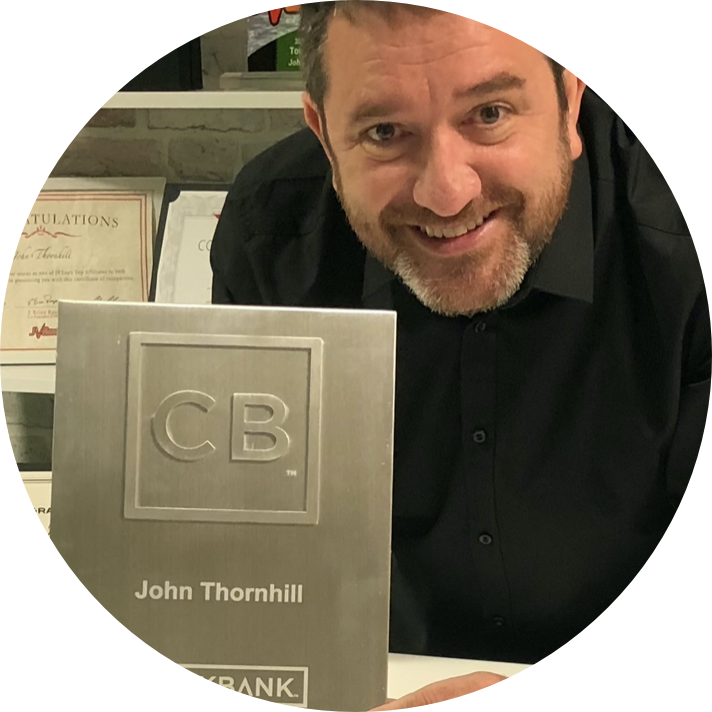
How To Make $3493 Commissions Without Doing Any Selling
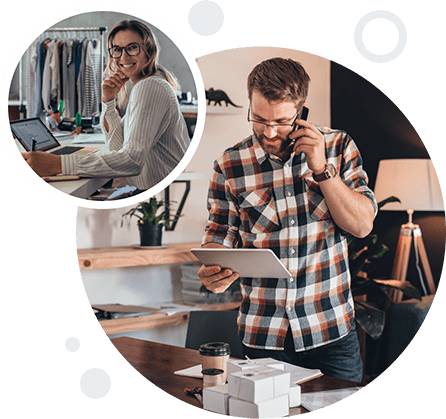
Successful dropshippers have reliable suppliers.

People Think I Use A Professional Voiceover Artist. NO! I Just Use Speechelo!

Make Money Testing Apps On Your Phone Or Tablet

Make More Money or Lose Everything
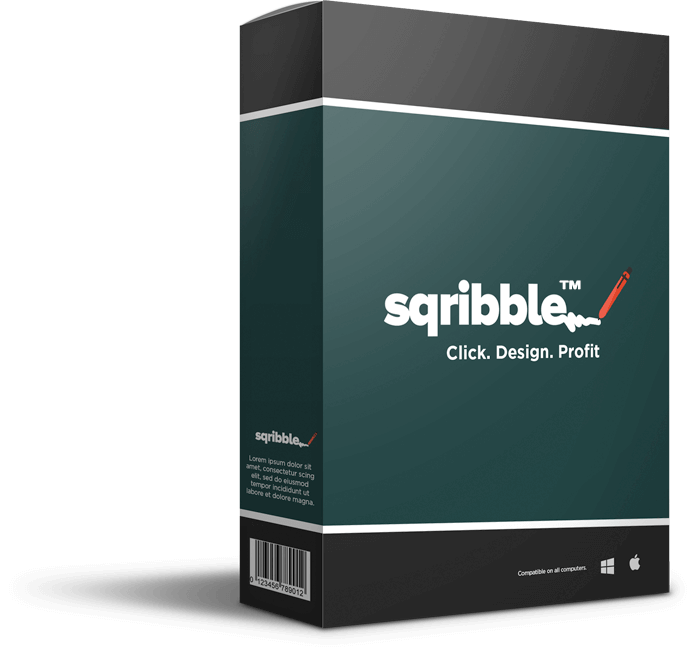
Sqribble Is The ONLY eBook Creator You’ll Ever Need.

Work & Earn as an Online Assistant
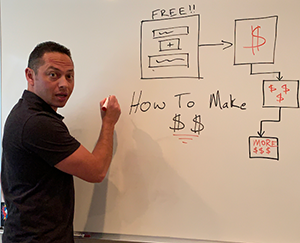
Create Ongoing Income Streams Of $500 To $1000 Or More Per Day

It's The Internet's Easiest Side Business.




